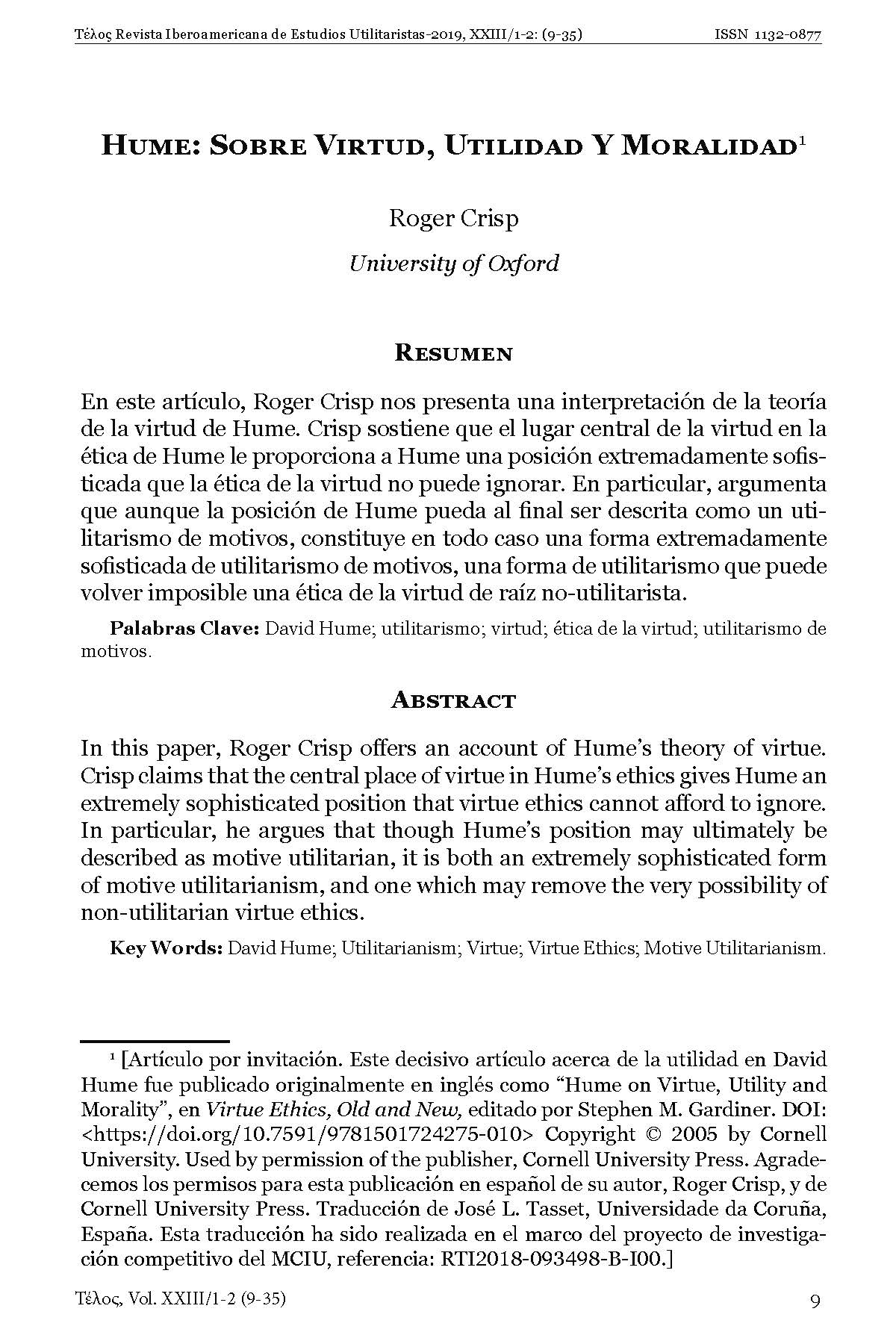Hume on Virtue, Utility and Morality
plugins.themes.xejournal.article.main
v. 23 n. 1-2 (2019), Artículos por invitación, plugins.themes.xejournal.article.pages 9-35
plugins.themes.xejournal.currentIssueSubmitted: 26-04-2020
plugins.themes.xejournal.currentIssueAccepted: 14-05-2020
plugins.themes.xejournal.currentIssuePublished: 26-04-2020
Resumo
In this paper, Roger Crisp offers an account of Hume’s theory of virtue. Crisp claims that the central place of virtue in Hume’s ethics gives Hume an extremely sophisticated position that virtue ethics cannot afford to ignore. In particular, he argues that though Hume’s position may ultimately be described as motive utilitarian, it is both an extremely sophisticated form of motive utilitarianism, and one which may remove the very possibility of non-utilitarian virtue ethics.
Palavras-chave:
David Hume, Utilitarianism, Virtue, Virtue Ethics, Motive Utilitarianism






